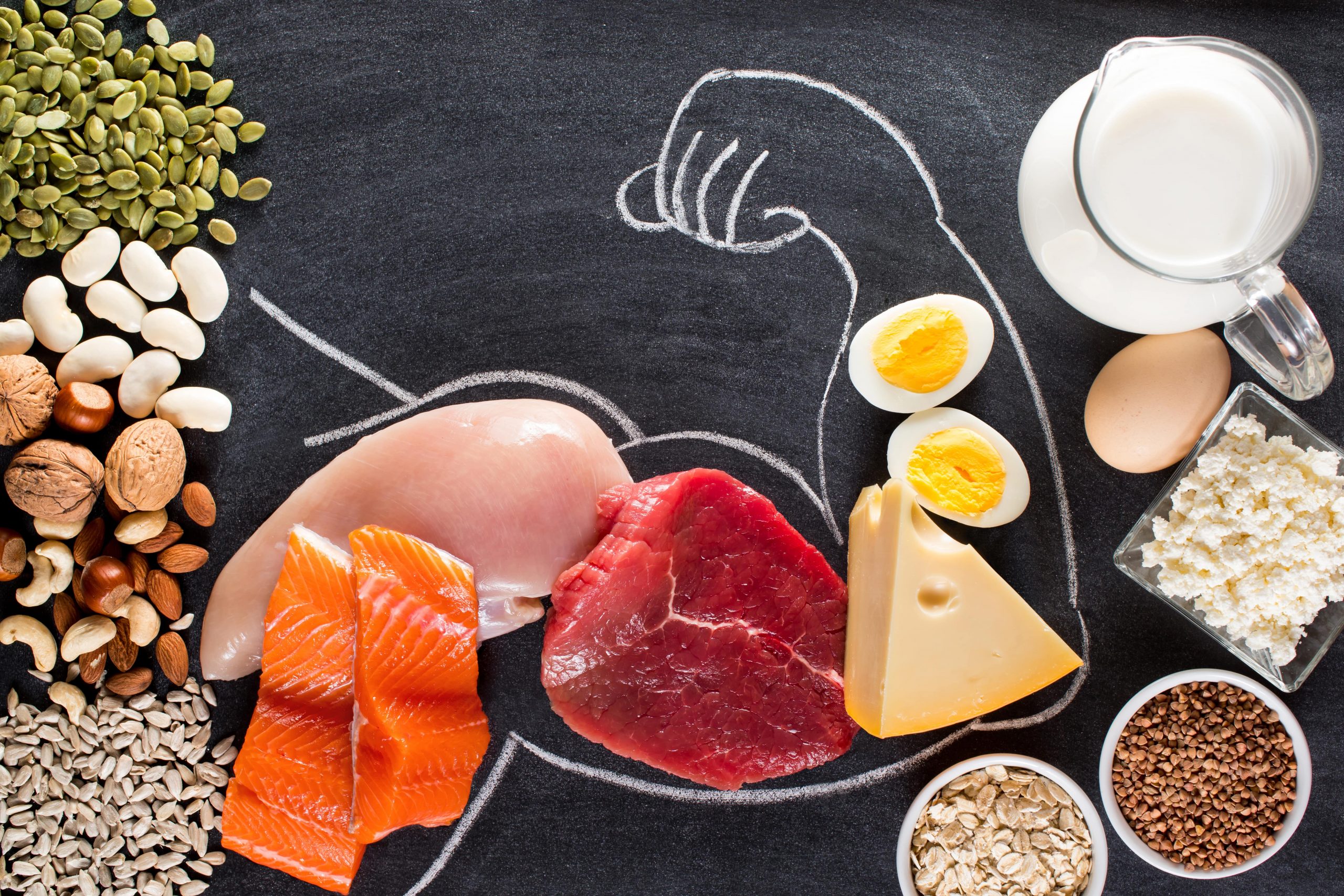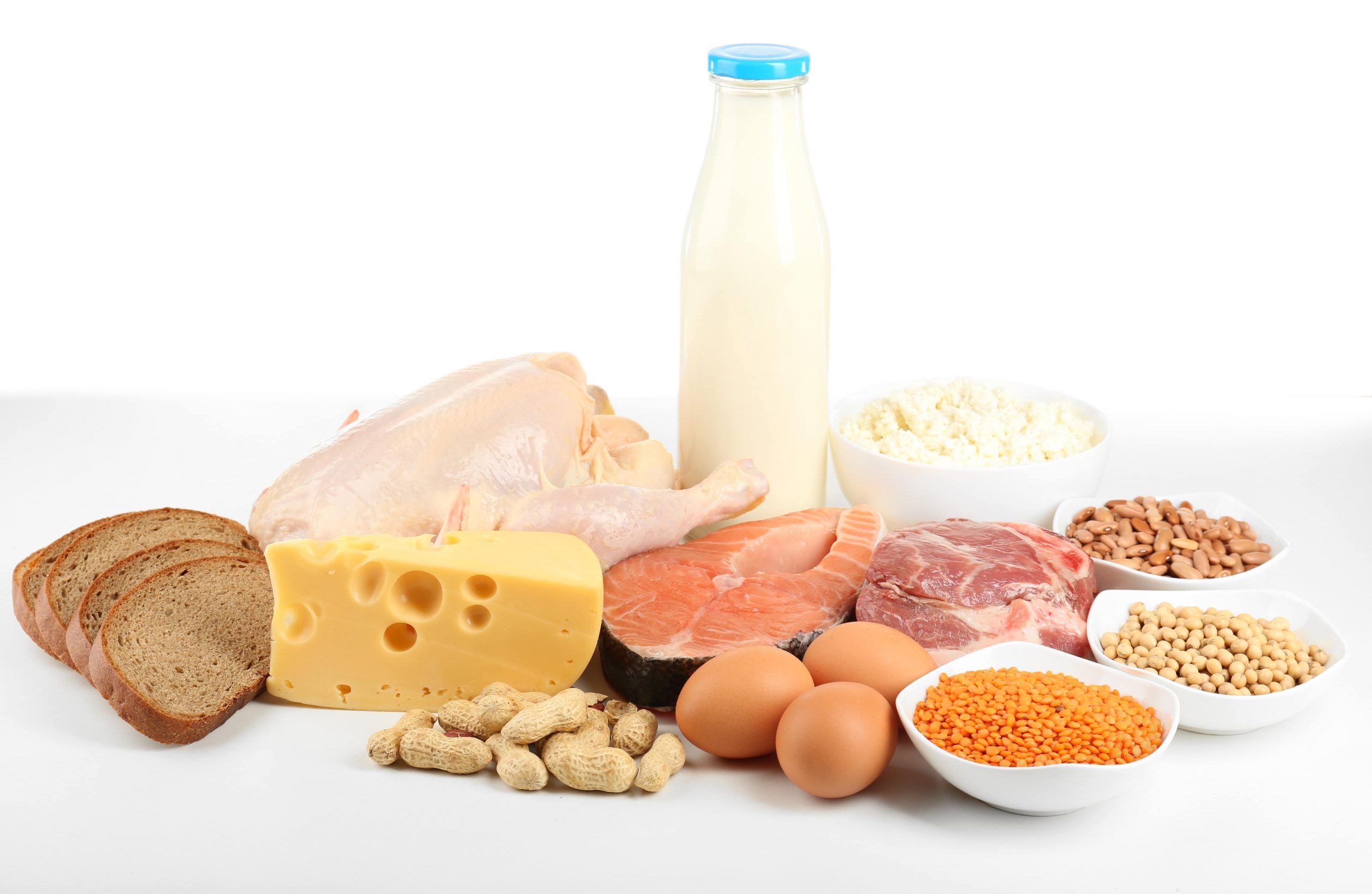Proteins are essential macro-nutrients in the body as they do the most work in cell functioning and tissues regulation. For this reason, here is everything you need to know about proteins.
A combination of twenty different sub-units known as amino acids results in the formation of protein. Moreover, the amino acid is coded by a combination of 3 nucleotides known as DNA. Protein has a wide range of functions in your body.Therefore, this article will outline the various functions and health benefits of proteins.
Types of Proteins
Proteins are naturally found in plant-based food and animal food. It comes indifferent types, including:
Casein Protein
Caseinprotein is derived from cowmilk. It contains all essential amino acids, and it is hard for the digestion process and absorption. It preferred to be taken during bedtime.
Whey Protein
The dairy-based product has all essential amino acids. It’s a byproduct of cheese making process, and its content is 0.9g. It’s quickly absorbed into the bloodstream because of its ease of digestion.
Pea Protein
A plant-based protein that is easily digested and is rich in iron, arginine, and branched-chain of amino acids known as cysteine and methionine.
Rice Protein
Plant-based protein taken from rice with a minimum value of essential amino acids is known as lysine.
Soy Protein
Protein derived from soy contains all essential amino acids. Nutrient content present includes carbs 2g, calories 95g, fat 1g, fiber 1.6g, proteins 23g, iron 25%, and phosphorous of the daily value. This protein has also been linked to a variety of health benefits.
Hemp Protein
Hemp proteins comefrom the seeds of the hemp plant. Itcontains fiber and essential omega-3 and omega-6 fats acid. Additionally, it has all nine amino acids but is low in lysine.
Apart from getting protein from plant-based food or animals, you can also get protein to inform powder. Mix the powder in fluids of your choice and drink.
Functions of Protein
Proteins have several functions in your body; hence itsdeficiency can lead to various disorders. Below are some protein functions.
Aids in Biochemical Reactions
Enzymes are proteins in nature andcarry all biochemical activities in and out of the cells. Enzymes combine protein with other molecules known as substrates during a metabolic reaction to speed up the process. Digestive enzymes such as lactase and sucrose help in the digestion of sugar outside the cells.
Acts as A Messenger
Some hormones are protein in nature; hormone messenger protein transmits signals to coordinate biological processes between different cells, tissues, and organs in your body and provide structural support for the cell. Types of hormones include:
- Amines: hormones obtained from amino acids tyrosine, which does not have the same properties as steroids and peptide hormones. They include thyroxin, adrenaline, and triiodothyronine.
- Protein and peptides are obtained from chains of amino acids ranging from a few to 1000 units and affect your endocrine system.
- Steroids: made from cholesterol, they are also known as sex hormones andinclude estrogen and testosterone.
- Adrenocorticotropic hormone: stimulates the production of cortisol, a hormone used to regulate glucose and proteins, maintain blood pressure and lipids, andmetabolism.
- Glucagon: a hormone responsible for the conversion of glucose into glycogen.
- Insulin that stimulates the conversion of glycogen into glucose
Provide Framework and Structure
Structural proteins are fibrous and composed of structural elements in connective tissue like cartilage and bones in invertebrates; they are rigid and stiff. This structural protein, such as collagen, keratin, and elastin, maintains the shape and framework of the cell.
Regulate the Body’s PH
Hemoglobin is a protein that forms part of red blood cells; it helps bind a few amounts of acid to the skin to be excreted; it also assists in regulating the amount of acid in your body.
Fluids Balance
Albumin and globulin proteins assist in absorbing water and retaining it in blood, preventing fluid leakage. Less protein will lead to insufficient albumin and globulin in blood; thus, leakage of fluids may occur.
Transportation and Storage of Nutrients
Hemoglobin is a protein that helps in the transportation of oxygen within your body. Lipoproteins transport cholesterol and other fats to the liver. On the other hand, ferritins are proteins that store irons in blood.
Energy Generation
Proteins give the same calories as carbohydrates which is 4 per1g, unlike fats, which give 9 calories per 1g. However, the body cannot use protein for energy production because it is used widely in your body. Fats and carbs are used for energy since they are easily metabolized as compared to proteins.
Health Benefits of Protein
Proteins are essential in your health and have the following benefits:
Protein Aids in Muscles Growth and Repair
A high intake of proteins may lead to strengthening, repair, and buildup of muscles. Muscles are tissues, while proteins are the building block of tissues.
Aids in Weight Loss
Replacing carbs and fats with a high intake of proteins reduces a hunger hormone and boosts several satiety hormones. This leads to less hunger, thus preventing weight gain.
Proteins Boost Metabolic Reaction
A high protein intake makes your body burn excess calories due to the high thermic effect and several other factors.
Good for Your Body (Healing of Wounds)
Proteins are the building block of cells. A high intake of protein can help you repair damaged cells and tissue after injury.
Side Effects of Protein
Excess intake of protein can result in different side effects on your health, including the following:
Intestinal Discomfort and Indigestion
The time taken for digestion of protein is longer than carbs. A large intake of protein makes you feel full longer. This may lead to conditions such as nausea, flatulence, cramping, and pain in the stomach.
Dehydration
The excess intake of protein leads to more working of your kidney to get rid of ammonia; as a result, you need to take in more water to eliminate ammonia ions from the blood.
Other sides effects include irritability, headache, unexplained exhaustion, and diarrhea.
The Bottom Line
Enough protein in your diet is very important. Moderate protein consumption can help health benefits such as gaining muscle, weight loss, and improving body metabolic reaction and composition. Eating protein at the right time can help you achieves your goals.However,excess consumption of protein may result in health issues.
- Learn to Enjoy Self-care Routine - September 21, 2023
- Jonathan Aufray’s Story - July 29, 2023
- From Public Housing To Ivy League: The Inspiring Journey of Crystaltharrell.com and its Founder - June 7, 2023







